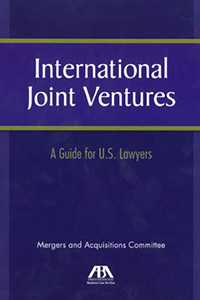International Arbitral Awards and Their Enforcement: Lessons from Colombia’s Article 28 of Law 2540 (2025) in Comparative Perspective

By Daniel Peña Valenzuela, Partner Peña Mancero Abogado
Introduction
The enforcement of arbitral awards remains one of the most critical dimensions of arbitration, as it determines whether the adjudicatory process achieves practical effectiveness. While the New York Convention (1958) established a global framework for the recognition and enforcement of foreign arbitral awards, national legislations continue to innovate in regulating the execution of domestic and international awards. Colombia’s Law 2540 of 2025, which will enter into force on February 27, 2026, introduces significant reforms in this regard. Article 28 of the statute allows domestic arbitral awards to be executed before the same arbitral tribunal that rendered them, provided the request is made within ten business days of notification. This reform contrasts with the previous regime under Law 1563 of 2012, which required parties to seek enforcement before ordinary courts.
This paper examines the Colombian innovation, situates it within the broader international landscape, and compares it with practices in jurisdictions such as France, the United States, and Singapore. The analysis highlights both the potential efficiencies and the limitations of Colombia’s approach, particularly in relation to international arbitral awards and matters involving public entities.
The Colombian Reform: Article 28 of Law 2540 (2025)
-
Scope of Application: Domestic arbitral awards, conciliations, and settlements approved by arbitral tribunals may be executed before the same tribunal, subject to a strict ten-day deadline.
-
Procedural Mechanism:
-
In tribunals of three arbitrators, the president acts as executor, or another arbitrator in alphabetical order if the president declines.
-
In sole-arbitrator tribunals, the arbitrator may act as executor upon acceptance.
-
If no arbitrator accepts, the arbitration center designates an executor from its roster.
-
-
Limitations:
-
Execution is only possible if the arbitration agreement expressly provides for an arbitral enforcement procedure.
-
If the deadline lapses, a new arbitral tribunal must be convened to enforce the award.
-
Awards involving public entities or administrative functions are excluded from execution before the same tribunal.
-
This framework reflects a hybrid model: it strengthens arbitral autonomy while preserving judicial oversight in cases where deadlines expire or public interests are implicated.
Comparative Perspectives
-
France: French law requires arbitral awards to be declared enforceable by the juge de l’exequatur. The arbitral tribunal itself does not execute its award; judicial intervention is mandatory, ensuring uniformity and public control.
-
United States: Under the Federal Arbitration Act (FAA), arbitral awards must be confirmed by federal or state courts to become enforceable judgments. The arbitral tribunal has no role in execution, reflecting a strong reliance on judicial authority.
-
Singapore: The Singapore International Arbitration Act allows for swift enforcement of awards through the High Court, which issues enforcement orders. Efficiency is achieved through streamlined judicial procedures rather than arbitral self-execution.
-
Colombia’s Distinction: Unlike these jurisdictions, Colombia’s reform empowers arbitral tribunals to enforce their own awards, albeit within narrow procedural confines. This innovation seeks to reduce reliance on ordinary courts, but its strict deadlines and exclusions may limit practical effectiveness.
Conclusions
Colombia’s Article 28 of Law 2540 (2025) represents a bold experiment in arbitral self-enforcement. By allowing tribunals to execute their own awards, the reform enhances efficiency and reinforces party autonomy. However, its effectiveness depends on careful drafting of arbitration agreements and strict compliance with procedural deadlines.
Comparatively, most jurisdictions—France, the United States, Singapore—retain judicial involvement as a safeguard, prioritizing uniformity and public oversight over arbitral autonomy. Colombia’s model thus stands out as an innovative but cautious departure, balancing efficiency with limitations.
For international arbitration, the exclusion of awards involving public entities and the continued reliance on judicial enforcement for foreign awards align Colombia with global standards. Yet, the Colombian experiment may inspire debate on whether arbitral tribunals should play a more active role in enforcement, particularly in domestic contexts where efficiency gains are most needed.

International Joint Ventures (2013)


